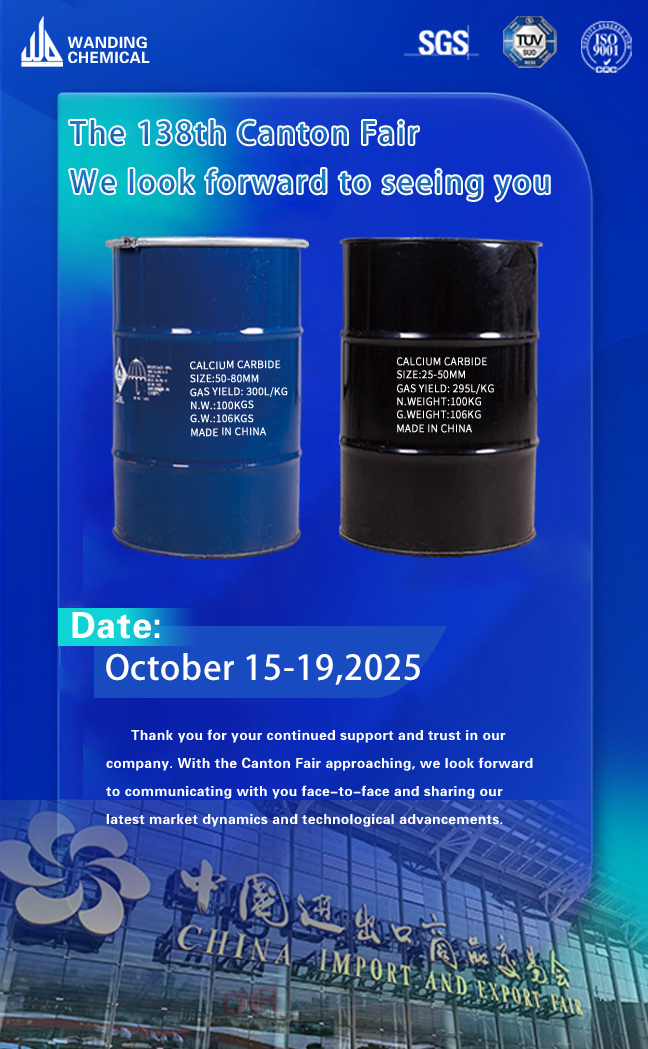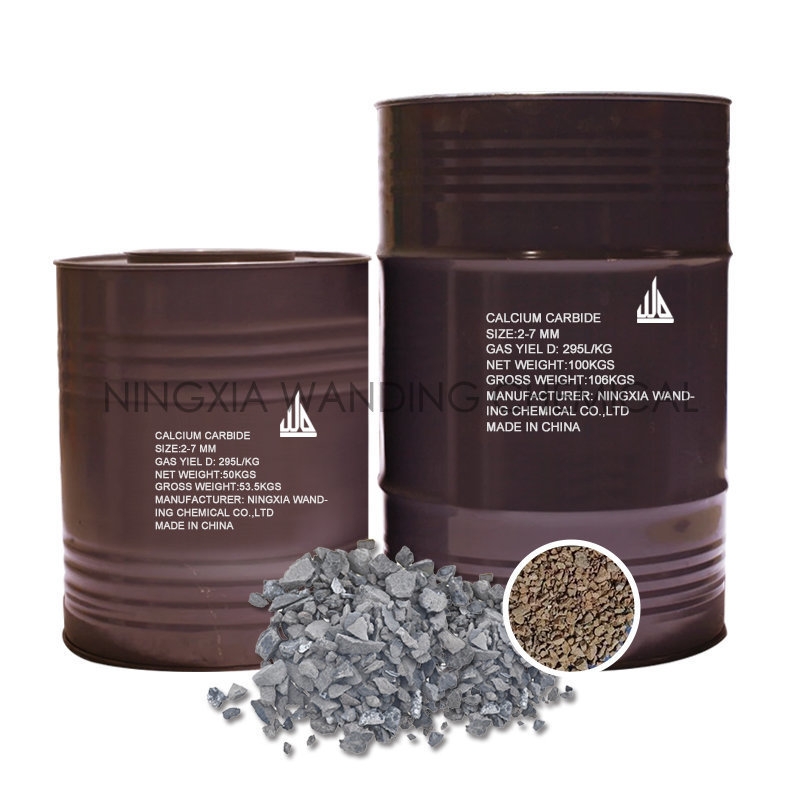Understanding Calcium Carbide in the Metallurgical Industry: Insights into 80-120mm Production
Release Time:
2025-02-13
Calcium carbide, a chemical compound with the formula CaC₂, plays a pivotal role in various industrial applications, particularly within the metallurgical sector. This compound is primarily utilized for the production of acetylene gas, which is essential for welding and cutting metals. However, its utility extends far beyond this application, making it a critical component in numerous industrial p
Calcium carbide, a chemical compound with the formula CaC₂, plays a pivotal role in various industrial applications, particularly within the metallurgical sector. This compound is primarily utilized for the production of acetylene gas, which is essential for welding and cutting metals. However, its utility extends far beyond this application, making it a critical component in numerous industrial processes.
The production of calcium carbide typically involves the reaction of calcium oxide with carbon in an electric furnace. The resulting product, particularly in the size range of 80-120mm, is highly sought after for its specific characteristics. The size of the calcium carbide granules is crucial because it affects the material's reaction rate and efficiency during its application. Larger granules tend to dissolve more slowly, which can be advantageous in controlled reactions.
In the metallurgical industry, calcium carbide serves several key purposes. One of the most significant applications is in the production of acetylene, which is vital for industrial welding applications. Furthermore, calcium carbide is also used as a desulfurizing agent in the steelmaking process, helping to improve the quality of steel by removing impurities.
Aside from its metallurgical uses, calcium carbide finds applications in the chemical industry as well. It is employed in the synthesis of various organic compounds and can serve as a catalyst in certain chemical reactions. Because of its ability to react with water, calcium carbide is also utilized in the production of acetylene gas on-demand, making it a versatile material in various industrial settings.
When sourcing calcium carbide, particularly from a factory that specializes in the 80-120mm size range, it's important to consider factors such as purity, production methods, and quality control measures. Manufacturers often implement stringent quality assurance protocols to ensure that the calcium carbide produced meets the industry standards. This attention to quality is crucial as impurities can significantly affect the performance and safety of the final product.
In conclusion, calcium carbide in the 80-120mm size range is a vital material in the metallurgy and non-metallic minerals sectors. Its applications, from acetylene production to its role in steelmaking, highlight its importance in modern industry. Understanding the properties and production practices of this compound can aid companies in making informed decisions regarding their procurement and usage of calcium carbide. Whether you are an industry professional or simply interested in the subject, recognizing the significance of calcium carbide provides valuable insights into its role in our industrial landscape.
The production of calcium carbide typically involves the reaction of calcium oxide with carbon in an electric furnace. The resulting product, particularly in the size range of 80-120mm, is highly sought after for its specific characteristics. The size of the calcium carbide granules is crucial because it affects the material's reaction rate and efficiency during its application. Larger granules tend to dissolve more slowly, which can be advantageous in controlled reactions.
In the metallurgical industry, calcium carbide serves several key purposes. One of the most significant applications is in the production of acetylene, which is vital for industrial welding applications. Furthermore, calcium carbide is also used as a desulfurizing agent in the steelmaking process, helping to improve the quality of steel by removing impurities.
Aside from its metallurgical uses, calcium carbide finds applications in the chemical industry as well. It is employed in the synthesis of various organic compounds and can serve as a catalyst in certain chemical reactions. Because of its ability to react with water, calcium carbide is also utilized in the production of acetylene gas on-demand, making it a versatile material in various industrial settings.
When sourcing calcium carbide, particularly from a factory that specializes in the 80-120mm size range, it's important to consider factors such as purity, production methods, and quality control measures. Manufacturers often implement stringent quality assurance protocols to ensure that the calcium carbide produced meets the industry standards. This attention to quality is crucial as impurities can significantly affect the performance and safety of the final product.
In conclusion, calcium carbide in the 80-120mm size range is a vital material in the metallurgy and non-metallic minerals sectors. Its applications, from acetylene production to its role in steelmaking, highlight its importance in modern industry. Understanding the properties and production practices of this compound can aid companies in making informed decisions regarding their procurement and usage of calcium carbide. Whether you are an industry professional or simply interested in the subject, recognizing the significance of calcium carbide provides valuable insights into its role in our industrial landscape.
News Hotspot





















